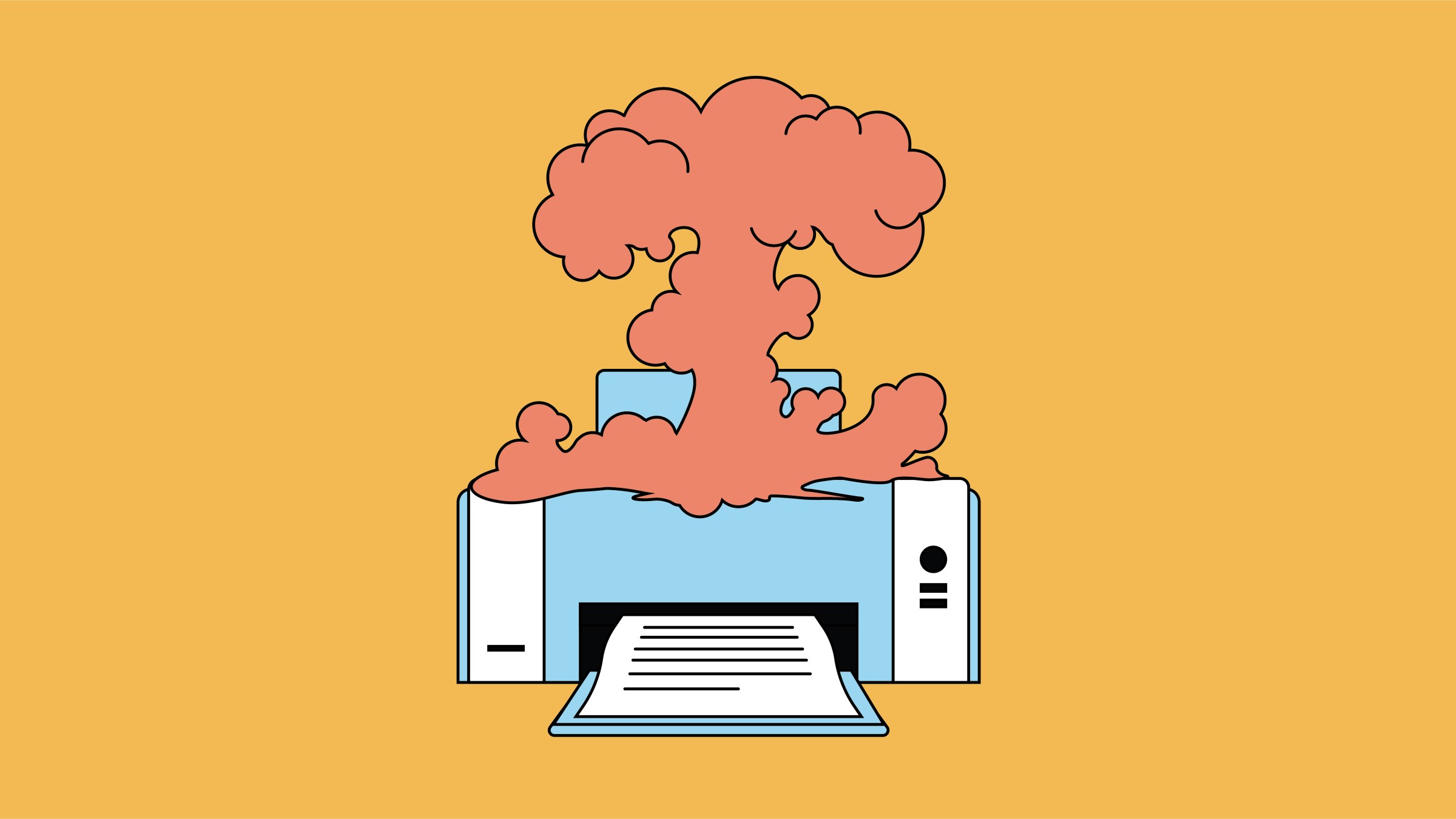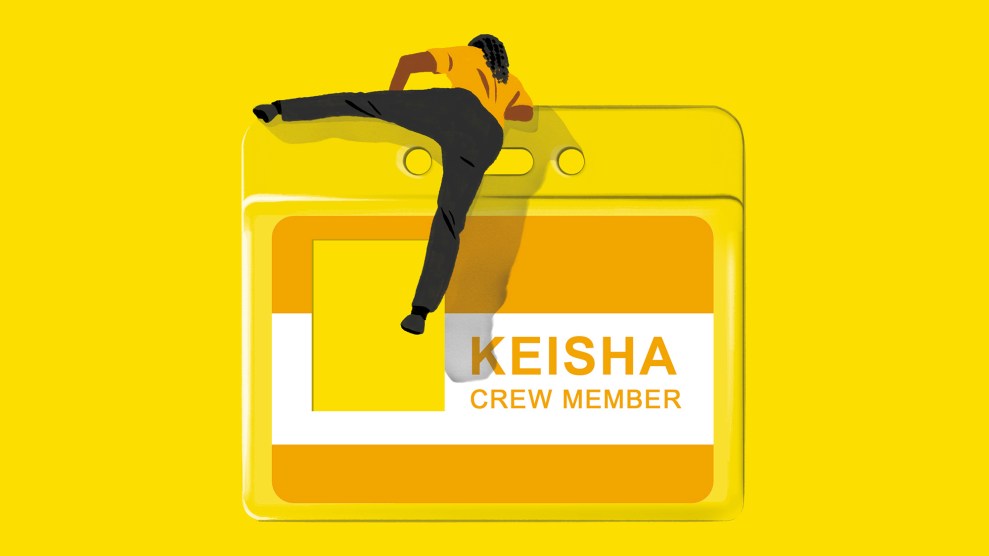When Kaitlyn Ramirez Borysiewicz decided to take a job at a reproductive health nonprofit in Washington, DC, she was spurred by social injustice, devastated by the escalating hatred and racism of the 2016 election cycle that swept a white supremacist pseudo-Christian into the Oval Office, and determined to do some good.
The job was a job, sure; she had bills to pay, and capitalism doesn’t slow down for idealism. But the mission became entwined in her identity. “I always really wanted to work for nonprofits. I grew up watching my mom work for a nonprofit,” she says. “I had just kind of that aspirational dream that most people have when they come to the social sector to change the world and give back to your community.”
It was only Ramirez Borysiewicz’s second job out of college. She made just $38,000 her first year and now laughs uncomfortably when she recalls her salary in the expensive metropolis: “The words coming out of my mouth sound so gross. I can’t believe that.” After she started, it quickly became clear to Ramirez Borysiewicz, who identifies as a biracial Filipina, that she was doing twice the amount of work as her white colleagues just to be perceived as covering the minimum required.
Still, she wanted to excel, because the work intersected with her values and her sense of morality. So, at first, she rarely questioned the workplace. Such behavior is not an uncommon phenomenon among those of us who work at mission-driven rather than profit-driven organizations. But this can also make nonprofit employees particularly vulnerable. Such an environment can easily turn abusive with the wrong leadership, especially when you care about the work beyond the minuscule paycheck.
For a year, her strategy for surviving was to keep her head down and focus on the work, which she says kept her from being targeted by anyone, but it didn’t prevent her from noticing that something wasn’t right. “Our executive director, this white man, would really go out of his way to kind of target this one Black woman in particular,” she remembers. “As staff, we had this front-row view to watching all of her work products being berated, her being belittled, seeing all these personal attacks. But being fairly new to the workplace, you kind of chalk it up to like, ‘Okay, this is just an individual thing, right? It’s not a pattern.’”
She soon discovered that it was not “just an individual thing”—the executive director had a tendency to direct his ire at a rotating cast of staff members who were women of color. It simply hadn’t been her turn yet. When he turned on her, she wrestled with his critiques, which felt more personal than professional.
Were they legitimate? Was she overreacting?
“When that’s the environment that you’re in, when the executive director is constantly poking holes into your worthiness—not just like a worker but poking holes into your worthiness as a human—you’re eventually going to crack,” Ramirez Borysiewicz says. “Even his constructive criticism was personal.”
He began to communicate with her about her duties haphazardly, at all hours, via Facebook Messenger and text message in addition to company channels. It was overwhelming but there was no one to talk to about it. The HR department was one person who was balancing multiple administrative responsibilities, and former employees interviewed by Mother Jones say they faced retaliation when they brought problems to HR.
Doris Quintanilla, who worked alongside Ramirez Borysiewicz at the time, agrees with her account. The executive director, she says, “had a special hatred for women of color.” Time and time again, they saw white women promoted into positions with more power and responsibilities, while they felt their own careers remained stagnant, in part thanks to a cultural expectation in the organization that the women of color should also take on extra administrative work.
Then came the moment Ramirez Borysiewicz could no longer rationalize her boss’ behavior. At a conference in Colorado that was hosted by the nonprofit, she found herself operating as the executive director’s personal assistant, in addition to her regular duties as a communications and education associate. She barely ate for four days, and one night she was up until midnight assembling binders for a meeting the next day, despite having been awake since 6 a.m. registering attendees. “There were so many times I was thinking, ‘I have no idea what I’m doing, because this isn’t my job, and no one has prepared me to do this,’” she says. “I’m literally being set up to fail.”
Then, one day, just 10 minutes before the executive director was set to deliver a speech at a plenary session, he turned to her and asked her to print out his remarks and bring them to him before he took the stage. She panicked and ran to the business center, but the conference wifi was spotty, and she struggled to download the document and send it to the printer. Ultimately, he had to go onstage without the printed remarks. He was seething.
Later, he demanded that she share a cab with him to go to the airport. He was insistent, and in desperation she lied and said she was going to visit family before she flew back. The blowup had been avoided for the moment, and she hoped he would cool off before they returned to the office. He didn’t. “He perceived me not being able to print out his remarks and then not taking a cab with him as a snub,” she says. “Things got really bad after that.” One day not long afterward, she was called into a conference room, where he launched “into a diatribe about my personal failings,” she says, though she doesn’t recall specifics; she just remembers sitting numbly before him in terror. “I was really internalizing these narratives that they were force-feeding to me, like I didn’t matter, like I was not good enough.”
Soon after that, the executive director seemed to ease up and recognize that she was stretched too thin. An opening for a communications manager was posted, and Ramirez Borysiewicz was asked to weigh in on the hiring process. She was relieved. When she began to notice that the first interviewee was being asked about specific parts of her current job, she brushed it off—it was probably just going to be a new structure, a way to redistribute the work and make it more sustainable. When the interview was over and the candidate left, a higher-up colleague said, “We should hire her.” Everyone began to get up from the table, including Ramirez Borysiewicz, until the executive director told her to sit back down and handed her a document informing her that she was being put on probation. “He made me interview my replacement,” she says.
Shortly thereafter, she was hospitalized—the stress her boss had placed on her led her to a nervous breakdown. Luckily, her insurance covered most of her stay in the psychiatric ward, but she paid about $800 out of pocket for the ambulance and the emergency room. Once she was released from the hospital, she quit her job.
This story is part of our Bad Bosses project, a reported collection of accounts from workers about their terrible bosses and the system that creates them. You can read more about the entire project and find every story here. Annotations—highlighted throughout—can be clicked for further context and comment from other parties. Got your own bad boss story? Send us an email.
















